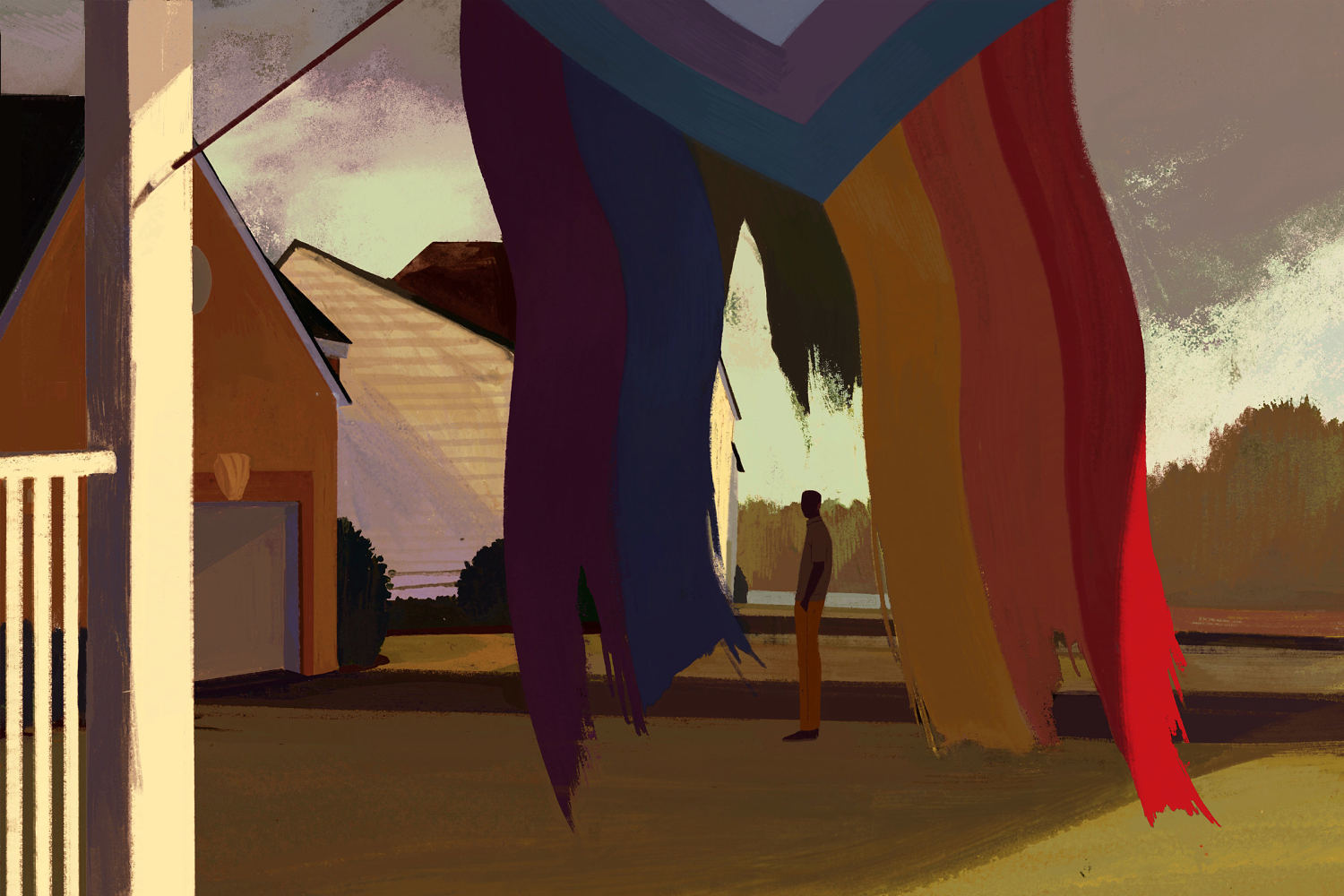
Before hoisting a Pride flag at her law firm’s office in Warren County, Tennessee — a rural county about 75 miles southwest of Nashville — Amanda Gentry got advice from some of her gay friends and clients.
“One of my guys said, the very first thing, ‘Do you want rocks thrown through your window? Do you want business in this town?’” Gentry, who is straight, recalled.
But her friends’ nerves didn’t rattle her.
“I wasn’t going to be concerned about a shortage of business or somebody not liking me. I could care less what people think of me,” Gentry said. “But showing that I wasn’t going to be intimidated by someone was important to me personally, and showing that even in a small town like that, we know you’re there, we see you and you’re supported, and I’ll fly the flag if you don’t want to.”
The night after Gentry hung the flag, a man trespassed on her property and cut the flag down, according to security footage Gentry shared with NBC News. However, Gentry said that the local attention the vandalism received generated empathy from some conservatives in the area.
“I had people who had never thought about it before, it resonated,” Gentry said. “And to me, that was worth every single bit of it. Period.”
Attacks on Pride decorations and events are not new.
In 2021, authorities arrested a Long Island man who threatened to attack New York City’s annual Pride march with “firepower” that would “make the 2016 Orlando Pulse Nightclub shooting look like a cakewalk,” according to officials. He was sentenced to 30 months in prison in 2022. The following year, police arrested 31 people allegedly affiliated with the white nationalist group Patriot Front for suspicion of rioting at a Pride event in Coeur d’Alene, Idaho. And last year, there were at least 145 incidents of harassment, vandalism and assault directed at LGBTQ people and events across the country during Pride Month, according to the LGBTQ media advocacy group GLAAD.
But acting Associate Attorney General Benjamin C. Mizer said that while the FBI’s most recent hate crime statistics are from 2022, “We have seen an increase in hate-motivated violence against the LGBTQI community.” Mizer noted that the crimes also often go unreported.
“There are many communities that are afraid to report to state or local law enforcement officials, and sometimes those fears are rooted in a history of troubling relationships between those communities and their local law enforcement,” Mizer said.
Adding to concerns about hostilities directed at this year’s Pride Month, the FBI and Department of Homeland Security issued a warning in May that foreign terrorist groups could target Pride events domestically. The State Department issued a similar warning about terrorism taking place at Pride events abroad in the weeks leading up to June.
Dale of Boise Pride said he was hopeful for the LGBTQ community’s future despite the growing attacks, pointing to the growing number of openly queer people and supporters in the country. The percentage of LGBTQ adults in the U.S. reached an all-time high of 7.6% last year, according to a Gallup report released in March.
“Unfortunately, there is a lot of hate, but there’s a lot more love,” Dale said. “I think the tolerance is a lot stronger than it leads us to believe as we see in these acts of destruction and theft.”
“With volunteers showing up, especially allies, putting these flags up everytime they get destroyed, it really makes the LGBTQ feel secure,” he added.
For more from NBC Out, sign up for our weekly newsletter.






